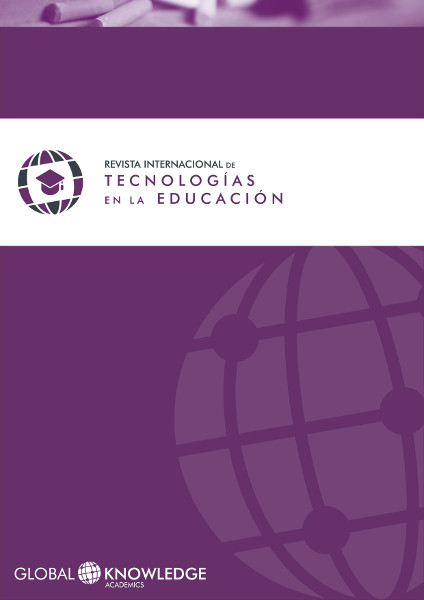Digital Competence in 21st Century Teachers: Usage Habits and Self-Perception
DOI:
https://doi.org/10.37467/gka-revedutech.v3.151Keywords:
Online Learning, Digital CompetenceAbstract
During the last years, Information and Communication Technologies have been included in the educational field, not only as support tools for teachers, but also as an essential part of the training and of the very learning environment. For this reason, the digital competence is considered one of the main competences in the teachers’ professional profile. However, there is a digital divide between the new Pre-School and Primary students, digital natives, and their teachers. Our study aims at knowing the self-perception on the digital competence and the daily habits of use of technology either in professionals of several fields and in students of the Degrees in Pre-School and Primary Education, most of them with working experience, comparing both items with the observation of their performance in blended learning subjects, with a significant online workload for the students. The aim of this communication is to present the initial results of the survey and the comparative analysis, which shows a gap between the self-perception and the usage habits, in order to suggest measures to be implemented in Higher Education.
Global Statistics ℹ️
|
766
Views
|
293
Downloads
|
|
1059
Total
|
|
References
Castells, M. (2006). La sociedad red. Madrid, España: Alianza Editorial.
De la Torre, S. y Violant, V. (2001). Estrategias creativas en la enseñanza universitaria. Creatividad y sociedad, 3. Doi: www.asocrea.com/revista_03/articulo0203.pdf
Gómez Hernández, J. A., Calderón Rehecho, A. y Magán Wals, J. A. (Eds.) (2008). Brecha digital y nuevas alfabetizaciones. El papel de las bibliotecas. Madrid, España: Biblioteca de la Universidad Complutense de Madrid.
INTEF, Instituto Nacional de Tecnologías Educativas y Formación del Profesorado (2014). Marco Común de Competencia Digital Docente. Madrid, España: Ministerio de Educación, Cultura y Deporte.
Maya, P. (2008). La brecha digital, brecha social. Los recursos humanos en el desarrollo y la capacitación a través del aprendizaje digital (elearning). Gazeta de Antropología, 24(2).
Pimienta, D. (2008). Brecha digital, brecha social y brecha paradigmática. Conceptos y dimensiones. En: Gómez Hernández, J. A., Calderón Rehecho, A. y Magán Wals, J. A. (Eds.), Brecha digital y nuevas alfabetizaciones. El papel de las bibliotecas. Madrid, España: Biblioteca de la Universidad Complutense de Madrid.
Prensky, M. (2001). Digital natives, digital immigrants. On the Horizon, 9(5). MCB University Press. DOI: https://doi.org/10.1108/10748120110424816
Downloads
Published
How to Cite
Issue
Section
License
Those authors who publish in this journal accept the following terms:
- Authors will keep the moral right of the work and they will transfer the commercial rights.
- After 1 year from publication, the work shall thereafter be open access online on our website, but will retain copyright.
- In the event that the authors wish to assign an Creative Commons (CC) license, they may request it by writing to publishing@eagora.org







